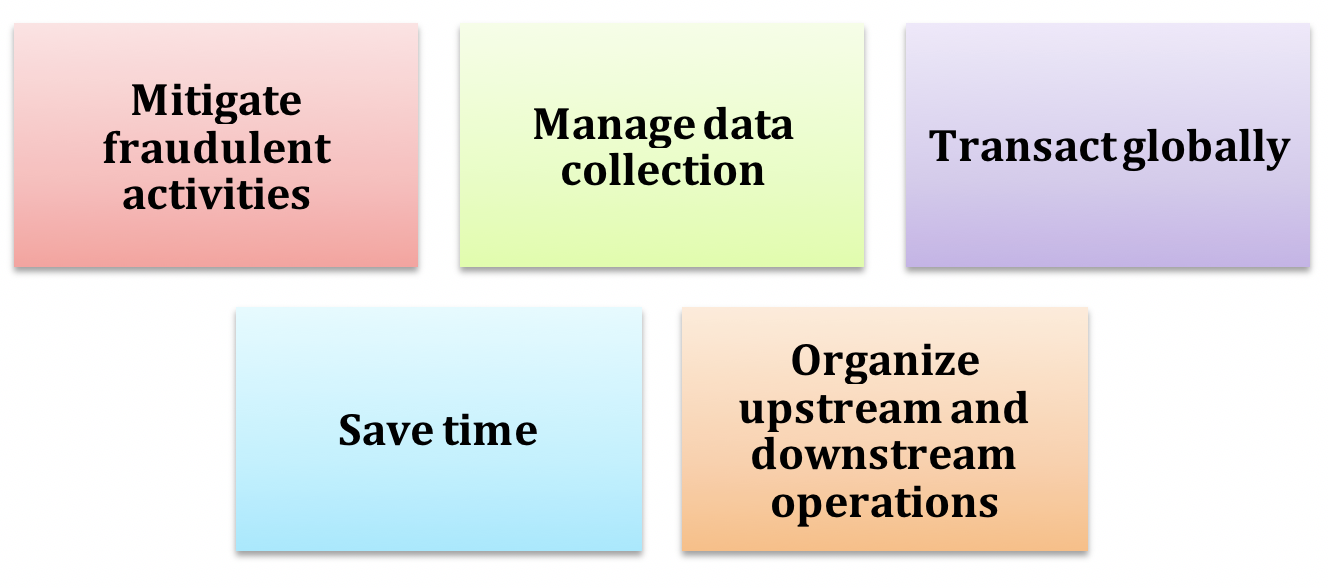• Blockchain in the petrochemical industry can optimize business operations, thereby enabling the industry to save its time and money.
By Naveen Joshi – Founder and CEO of Allerin
Works in Big Data, IoT , AI and Blockchain

Even though blockchain technology is in its nascent stage of development, several industries are leveraging it as per their industry requirements. Experts, on the other hand, are striving to explore the hidden opportunities in this technology. “China and Singapore utilized the blockchain to complete a gasoline shipment between their borders.” Technology is being seen as a way to simplify complex and lengthy transactions in energy trading and to reduce costs by digitizing key documents. Blockchain in the petrochemical industry will help optimize the tedious internal business processes, such as data assimilation, transportation, operations, and shipments, that demand high security.
Benefits of blockchain in the petrochemical industry :
Mitigate fraudulent activities : The older method of storing classified information in books or computers bear a considerable risk of data breach. Besides, there is an internal risk of deceit too, where an employee can try to tamper classified data. The petrochemical industry contains endless records from multiple sources, such as purchase invoices, bank funds, and buyer’s demand lists. All of this information is highly confidential and demands high-security. Hence, the conventional method of storing fails in such situations. With blockchain, classified information is stored on a decentralized ledger. Hence, tampering of data is not possible. Moreover, if data is altered by any means, then the participants will get notified of the changes in real-time.
Manage data collection : The petrochemical industry deals with the acquisition of province for various processes, such as investigation, determination, and creation of petrochemicals. All this entails heavy paperwork, and paperwork means chances of disputes around proprietorship. With blockchain, data once stored is immutable. Besides, it is easy to follow up the transactional details in real-time, when needed, thanks to smart contracts.
Transact globally : Joint ventures, which are agreements made when two or more major business leaders work in collaboration and agree to execute a set goal, are a common sight in the petrochemical industry. Such agreements involve legal papers that demand security. This is where blockchain and smart contracts can help the petrochemical industry. Not only the participants but also the tax authorities can track the contracts as and when needed.
Save time : A lot of shipping information, such as reports, invoices, and orders, should be handled with care. It is vital to keep track of such data for product evaluation, delivery, and maintenance. The participants involved in these transactions should have a clear idea of where the required record is currently present. With blockchain, data storage and data retrieval have become an easy task. Since data is stored on a decentralized database, participants can get complete access to all the required data. Hence, the time spent in validating records reduces extensively.
Organize upstream and downstream operations : Who would have ever thought that blockchain can help the petrochemical industry from start to end, from upstream to downstream of the value chain? Upstream operations involve exploring the oil and gas deposits and the associated sub-operations. Blockchain helps the industry to streamline the mining process and securely transact assets recovered in the exploration of oil and gas. Mining leader, BHP Billion, has already started using blockchain to track the motion of oil and gas.
On the other hand, downstream operations involve collecting, marketing, and delivering petrochemicals to the end customers. Use of smart contracts will help the industry to transact securely across the downstream operations. Using smart contracts in downstream operations will prevent the industry from incurring regulatory penalties.
Elimination of paperwork, adoption of smart contracts, and identification of risk activities are some of the major areas where blockchain is showing its capabilities in the petrochemical industry. However, a major disruption is yet to occur. As the technology matures, experts will identify significant use cases of blockchain in the petrochemical industry.
























